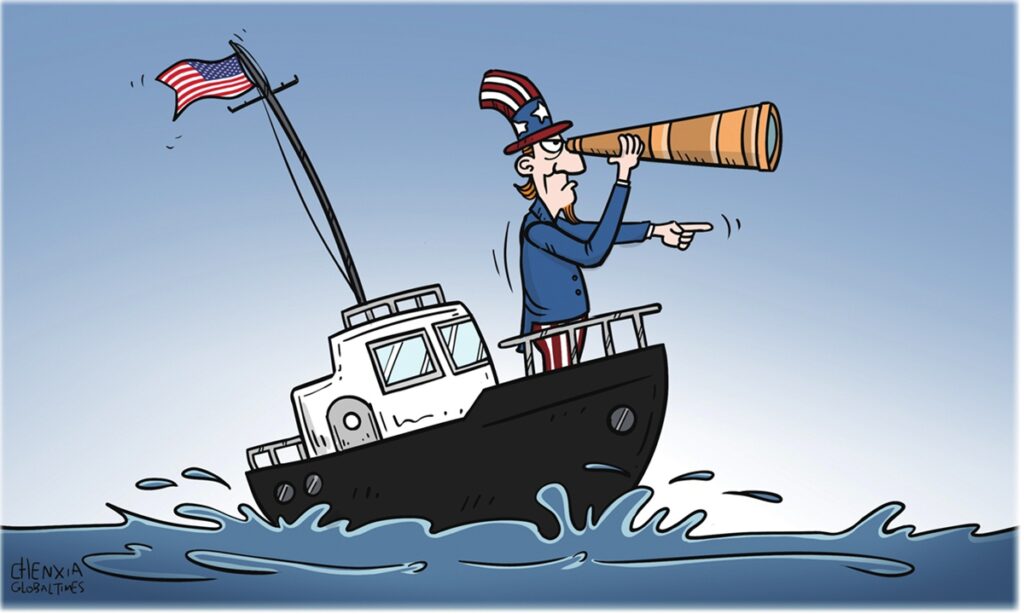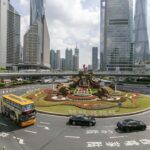‘Bloc confrontation, Cold War mentality’ not welcomed in Asia-Pacific
Senior officials of the US and US-led military organization NATO are continuing to create hostile atmosphere against China among its allies and partners in the Asia-Pacific region, but at the same time, the US is seeking more engagement with China to better manage the so-called competition and the US even wishes to cooperate with China on some issues of great concern to the US, such as finance and the economy, climate change and the Russia-Ukraine conflict.
Chinese analysts said the insincerity of the US side is very obvious, so China will also be cautious when it deals with the US. If the US refuses to correct its mistakes to fix the bilateral ties that have been unilaterally damaged by the US side since 2018, but instead, keeps urging and using its allies to contain China, then Washington should not expect China to be cooperative in those fields.
According to the Associated Press, US Defense Secretary Lloyd Austin was in the Philippines on Wednesday for talks about deploying US forces and weapons in more Philippine military camps to ramp up deterrence against China’s actions around the island of Taiwan and the South China Sea.
In an interview with the Financial Times earlier this month, Philippine President Ferdinand Marcos ruled out the reopening of the former US military bases of Subic Bay and Clark, saying it was against his country’s constitution to allow foreign bases on its soil.
On Tuesday, visiting NATO Secretary General Jens Stoltenberg and Japanese Prime Minster Fumio Kishida pledged to strengthen their ties and discussed “challenges,” including “China’s coercive behavior” in the region. Stoltenberg also implied to the media that an incident like the Russia-Ukraine crisis in Europe could also happen in Asia while labeling China as a “threat” to regional peace.
Mao Ning, a spokesperson of the Chinese Foreign Ministry, responding to a question related to the NATO chief’s remarks raised at Wednesday’s routine press conference, said that on hot spot issues like the Russia-Ukraine conflict, “China has always played an active role in promoting peace and negotiation,” and that NATO should carefully rethink what role it has played in the security of Europe.
“What I want to stress is that the Asia-Pacific region is not a battlefield for geopolitical struggles, and we don’t welcome a Cold War mentality or bloc confrontation,” Mao said.
The VOA said in a report that US experts hold low expectations for US State Secretary Antony Blinken’s potential trip to China as they believe it will not “reset” ties with China. So far, the Chinese side is yet to confirm Blinken’s visit despite the spokesperson of China’s Foreign Affairs Ministry previously expressing an attitude of welcome.
Lü Xiang, an expert on US studies at the Chinese Academy of Social Sciences, told the Global Times on Wednesday that the reason why the Chinese side has held such low expectations is that it knew the US will not change its hostile attitude toward China, and it knew Washington will not be sincere in fixing the bilateral relations.
“China will also hold a cautious attitude to deal with the US. We are open to any efforts for engagement, but we are also clear that the US will not give up its attempt to contain China’s development, and China will never give up its legitimate and rightful development,” Lü noted.
When US leaders and officials talk about setting “guardrails” for the China-US tension, they are actually talking about setting unfair rules and standards issued by the US and they want China to follow those rules to eventually contain China’s development, a Beijing-based analyst said.
However, China hopes “setting guardrails” is about making sure Washington does not do anything to provoke the China’s core interests like the Taiwan question, he remarked.
The US will not get what it wants from China if Washington shows no sincerity to correct the mistakes it has made since it launched a trade war with China in 2018, and the tough economic situation will make the US pay a higher price for its China policies, analysts noted.
(Global Times)




